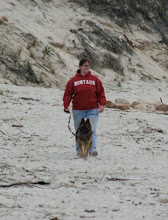Attribution Bias and Group Identity
Humans experience the world subjectively. Our family, upbringing, education, experiences and current situational factors all play into how we interpret events. Keeping that in mind when I was studying attribution theories there were two that stuck out in my mind.
1. Fundamental Attribution Error- This is our tendency to under value situational factors and over value dispositional factors when judging the actions of others. With others we will be more likely to down play the situation and assume behavior has to do with personality. For example if you see someone trip on a step you may be inclined to think they are clumsy. Whereas if you tripped on a step you would take into account the odd height of the steps.
2. Hostile Attribution Error- This is a tendency to interpret ambiguous actions as having a hostile intent. For example someone you were talking to walks away and then says something under their breath some would assume it was negative towards them.
Also another important theory to keep in mind is in-group identification. Many tests and studies have shown that people identify and prefer things/people that are similar to them. There was someone who I had known for a few months and upon learning I was a republican (despite the fact we had always been friendly to each other) all of a sudden assumed I wouldn't want to go places or do things because of my now known political affiliation.
I find that it is best to keep these ideas in mind when dealing with people. It is so easy to assume something about people that you don't really know. Sure I would like to say I never make judgements and I don't have any biases but I know that isn't true. Some one comes into the store and finds out they need to wait to see an associate. They insist they need to be at work soon they are only on break. I walk away thinking they should have planned better. I assume that they were unthinking in reality I don't know what is going on in their life maybe this was their only chance. I assume it is due to disposition without taking any situational factors into account.
As for hostile attribution theory I seem to run into it a lot of work. Customers when I call someone assume it iss not that I don't know it is that I don't want to help them. But perhaps my favorite example of hostile attribution theory happened when I was younger working at Toys R' Us. A customer had stopped Meg and asked her for a toy. Meg had gone into the back to see if there was more in the back since the shelf was empty. A few minutes after she walked off I came by where the woman was and asked if she needed help. She responded that I was supposed to already be helping her. I said that I have a twin sister working at the store and she is probably looking for the woman's toy and then I started to walk off to the next customer. She yelled at me that I was supposed to be helping her and that she knew I was lying just so that I wouldn't have to help her. A bit in shock I insisted that I did have a twin and I would go find her. Once in the back I found Meg and one of my managers and explained what had happened. Meg had the toy and the manager insisted that we both go out together. We did. Another woman who had waited there, I assume to see what happened, mouth fell to the floor and she whispered "They are twins." The original customer left with her toy and didn't say a word.
I find myself doing this. Someone is looking at me or approaches to close to me or walks away and mutters something. I definitely feel myself becoming defensive.
In a day when people seem to be getting ruder and ruder to each other it helps me to keep my own biases in mind and the possible biases of others. I think a little more understanding might go a long way.

No comments:
Post a Comment